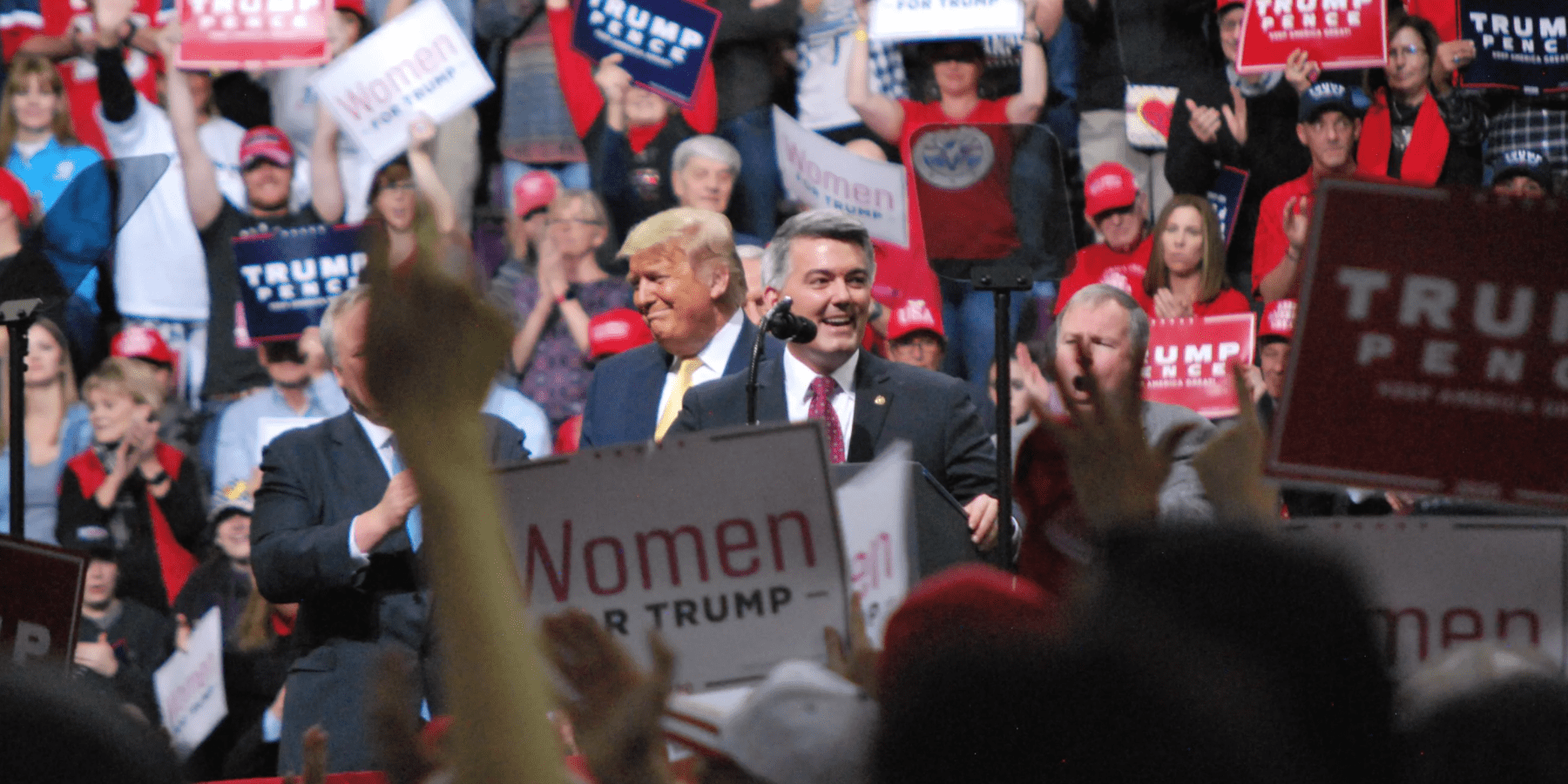With three months remaining until the 2020 election, the Trump campaign appears to be surrendering in Colorado, with no television advertising time reserved at all in the state, prompting the question: Will August be the month Cory Gardner, a close ally of the president, breaks from President Donald Trump?
Trump has become “a real albatross around Gardner’s neck,” according to Seth Masket, a political scientist at the University of Denver. Gardner is polling ahead of Trump, although both are trailing their opponents.
“It wouldn’t surprise me if we see him more visually and overtly criticizing the Trump administration and saying, ‘This is where I differ from the President,’” Masket added. “The electoral environment isn’t great for him otherwise.”
The scale of the defection, though, could fall within a wide range, Masket said, adding that the smart move for Gardner would be to pick a salient issue to take a stand on.
During the past week, Gardner publically disagreed with the president on voting by mail, which Trump called “fraud” on Twitter. Gardner said mail-voting “works great for Colorado.”
Gardner also publicly pushed back against Trump’s proposal to postpone the November election.
“Americans are going to vote on November 3rd, come hell or high water,” Gardner wrote in a statement to the Colorado Sun.
He’s disagreed with a White House plan to remove 12,000 American soldiers from Germany. “I strongly support our presence in Germany,” said Gardner, according to The Gazette, adding that the plan would be difficult to carry out with the Senate’s approval.
Masket also noted that Gardner’s advertising at this point has focused on themes like bipartisanship and collaboration.
Break With Trump Would Appeal to Unaffiliated Voters
“We believe there is upside to Cory Gardner distancing himself from the President,” agreed David Flaherty, who directs Magellan Strategies, a Republican-leaning polling and consulting firm. “Cory Gardner, we believe, to defeat John Hickenlooper needs to appeal to some unaffiliated voters, and right now the president’s job approval rating among unaffiliated voters is abysmal.”
In trying to appeal to unaffiliated voters, however, Gardner risks alienating Republican voters, who overwhelmingly support the president. Gardner can’t afford to lose conservative votes, many argue, because it will be so difficult to win over enough unaffiliated voters for a victory in Colorado, where Democrats now outnumber Republicans.
But beyond the question of whether and to what extent to distance himself from Trump, Gardner faces a tough reelection race in an increasingly Democratic state, and his path going forward is unclear.
Masket added that attacking Hickenlooper alone will not suffice. “He’s not going to get there just by going after Hickenlooper,” Masket said. “A lot of people have tried to tear down Hickenlooper’s reputation and haven’t gotten very far with it over the years.”
One important element is that Gardner also needs to connect with likely voters about issues that matter to Colorado, according to Flaherty.
“He needs to remind voters that he’s from Colorado. He needs to remind voters he’s from Yuma,” Flaherty said. “I think people don’t look at Cory Gardner as a Coloradan, he looks more like somebody from Washington.”
Masket and Flaherty agreed that regardless of whether Gardner chooses to break publicly in the next month, the decision will stem from his individual campaign’s needs, not the fact that the Trump campaign has given up on Colorado.
“It doesn’t help him that the presidential race is considered more or less over here but as long as [Garder] can show that the Senate race is viable, he’ll still get some resources out of that” from national sources like Republican National Senatorial Committee, Masket said.
Flaherty cautioned that early August is too soon to judge for sure, but the key for Gardner’s campaign is to make the case for his reelection on his own merits, not in terms of where he stands with Trump.
“I think Cory Gardner could still win without the Trump campaign putting any additional resources into this state,” Flaherty said. “Cory Gardner needs to appeal to Coloradans that are likely to vote and he needs to make a case of what’s done in the Senate and what he wants to do in a second term, and that’s a bigger priority now than relying on more dollars to run more digital ads or more television ads or, to some extent, more ground game.”



